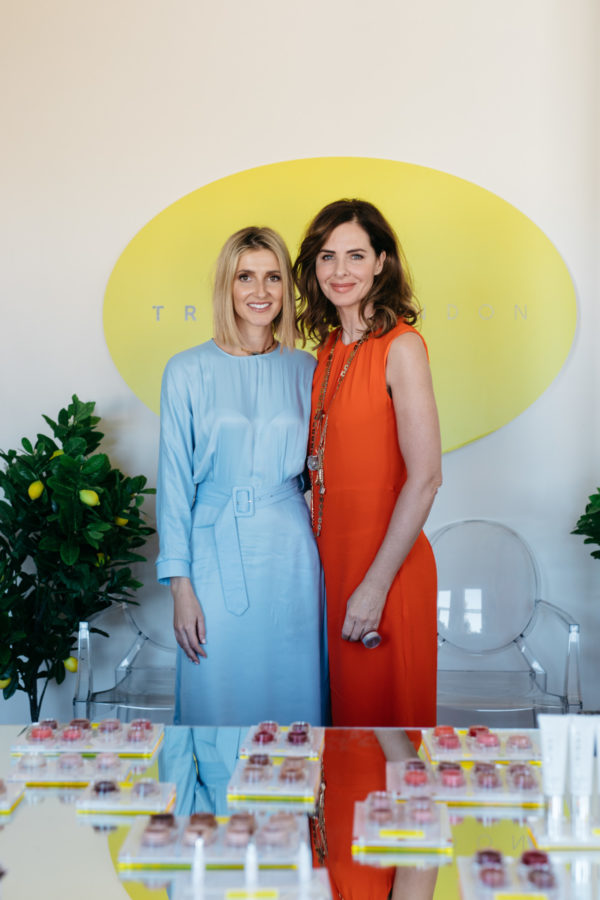
From styling other students at boarding school to becoming one half of the iconic fashion duo that is Trinny and Susannah, Trinny Woodall knows what makes a woman feel confident and look her best. So it was only natural that she venture into the beauty world, starting her own eponymous cosmetics line, Trinny London. During her visit to Sydney, I caught up with the woman herself, where we talked about everything from the how she got her start to her beauty philosophy and the most memorable makeover she’s ever done…
Trinny, thank you so much for joining me today. So exciting to actually finally meet you because I’ve always been a huge fan.
Trinny: Oh, I feel like you’re 12, and I think, when did you have time….
No, no, no. I’ve always admired you and loved your shows and followed your career, so it’s a thrill to be here today. How did this all start for you? Now you have a makeup empire, you’re a fashion expert. Where did it all begin?
It probably began when I was at boarding school at about six and a half.
My parents travelled a lot, so I went to boarding school. I would always make-over my girlfriends at the weekend because the ones who didn’t go away to see their parents, who might have had their parents abroad, were stuck in this really old-fashioned rather terrible school. So there’d be 20 of us, and I’d do makeovers. So I think I loved it then because it was a joyous thing and I think I was trying to find my feet and learn to make friends and it was a way to communicate.
And I think that even though I then went off on a tangent in my twenties to think I need to find a career where I went very far away from what I had loved then, I came around in a full circle by my thirties.
What did you do during that full circle?
My father used to run a bank, so I thought I should, I was the youngest of six kids and I thought I need to get them to notice me. I was never very good at school. And then I kind of thought, I want to try and do something that my dad would acknowledge. I went straight to work as a secretary to a commodities trader. And then I learned about commodities. And then I did a series seven, which is an exam you do to trade funds. So I started on a tangent and it was me and 60 men on a trading floor. I hated it so much. I hated every day of it.
They would have a tailor who would come on the trading floor and do their suits. So I thought, okay, I’ve got to fit in. So he would come in the ladies loo with me and measure me up, get me a suit.
I was the only woman there who wasn’t a secretary. So it was very interesting, but I realised after on and off doing it and then doing financial PR for a bit and a few other things that by my late twenties I woke up like, look, I don’t like any of these things.
How did you get back into fashion?
I had at that stage, I’d always had an interest in, I’ve always want to have girlfriends who would, you know, be at my house for supper and they’d end up in the bathroom discussing cosmetics or skincare or they’d be in my wardrobe looking at clothes and I just then woke up one day and I said I’d love to know what’s in the stores now so I can actually buy it. That didn’t exist in press. So I then, you know, had the idea for a newspaper column and then I met Susannah [Constantine].
How did you meet her?
She was going out at the time with [aristocrat and furniture maker] David Linley and we met through him. We were sort of like cats in an alley, you know, when you’re not sure what you think of each other.
How did you move into your show, Trinny and Susannah, which became such a beloved program?
We started with the column [in The Daily Telegraph] and it got a bit of a following. Then BBC called up so that we have this pilot you did and we want to do it, it was a copy of our column. So we did it on BBC two and the first season did quite well. And then it got a big traction and got a lot followers.
What was the biggest highlight during your time on air?
I think looking back now, it’s the fact that I got to know and understand so many women and through the medium of TV. But all the women who came on it really had a shift and we dealt with some really vulnerable women. We never dealt with women who just wanted to be on TV cause that wasn’t life then. So they were still excited or nervous or belligerent or I don’t want to change, you know, all different things. But by the end of it, something had happened and that metamorphosis was incredibly appealing. And I just loved how even if they went back to their old clothes, they had had a shift in how they felt about themselves.
What was the biggest make-over you ever did?
There were two, one of them was in Australia. It was a woman who had come from Kenya, and she had come to Canberra via Geneva and she been sold as a teenage bride to this diplomat in Geneva. And he had been an unbelievably abusive man. She then escaped and her sister worked in politics in Canberra. So I remember we met her at the Botanical Gardens in Canberra.
So I went up to her and she was gentle and charming and she just said, you know, I’ve had quite a difficult time in my life and I’m ready now to find out who I am. She also escaped with a child. And so we had this scene in the show where she would undress … And we chatted about the fact she’d been in this abusive relationship and as she took her clothes off on her back, there were these marks all the way up and down her body and he’d done that.
She was such an incredible woman. And then this is a really tricky thing because we did the after show at a Westfield and we had this big catwalk. Since she left Geneva, she has only worn black cause she wanted to hide and she said to me, you know, I’m ready to work on it. So we had like three outfits for choice and one of those was an amazing orange dress. We’d spent a few days together she said, I’m ready to wear that orange dress.
There were like 3,000 people watching, she walked out and, and they were so there for her. You just saw the blossoming of this woman. And so that for me was such an amazing moment because sometimes you catch women where they’re going through so much emotionally.
If you had one fashion tip, what would it be?
When we look in the mirror we have a tendency to look at what we don’t like. So I think it’s really important that any woman to when you’re in the mirror take a step back. If you find yourself doing that just go back and then take a picture of yourself in something. Not in the selfie nation way, but just so that when you look at a picture, we tend not to zone in so much as when we look in the mirror. Just give yourself a break and just try and see what’s good.
So let’s talk about this amazing product, Trinny London. I love how you’ve made everything stackable. How did it come about?
I had this idea for a long time because I used to use these pots and I travel around people say, what’s that? I’ll say that’s my makeup bag and they’ll go, where can I buy it?
I know a woman who our daughters are friends at school and she ran Beauty Intel, which is a research company. So I told her about the idea and she said Trinny, it’s everything that you know. The next five years it’s about personalisation. It’s about portability, it’s about cream-based product. It’s about a natural look.
Okay I’m going to do it now where do I start? You know, how do I get my packaging made? All of that then took three years. We now have 89 products.
So did you start with one particular product and then grow?
I started with the BFF. That was the first product I did. I think we’d probably sell one every minute. It has three skin care ingredients, retinol, vitamin C and SPF and everything else you don’t need. And then rubbing it in it releases pigment that turns to the colour of your skin. It would just give you the tiniest coverage cause I don’t think women need much all over their face and then it will give you a tiny glow.
What’s your whole makeup philosophy?
I would say that I always want to see a woman’s face before I see her makeup. And I’d say that if you’ve been doing the same base for years, really kind of re-evaluate. Is that the right thing for you to do?
Where do you think that you’ve got your love of beauty from?
From having very bad acne. When I was 13 to 30, and it just made me so self aware, and it made me very uncomfortable around my skin. So I just wanted to slather myself in fake tan and make up. And then in the end I just thought there’s actually a better way.
What’s the number one product that you would suggest for people?
I would say BFF is your kind of intro to Trinny London, and then it comes with the little tin pot which is empty. So you then put that on, and then you move up, and then you get to, I would then probably buy a Lip to Cheek. And then I would buy it an Eye to Eye, and then I would buy a Lip Glow. So and then that can be your whole face. And then as you expand, you might then say, “I want a highlighter, and then I want an under eye concealer.” And on you go. And then people’s stacks become towers.
How do you juggle working along with being a mum to your daughter, Lyla?
It is a permanent juggle. I would say that there’s times when Lyla was really small where I had to travel a lot, and when I was no longer with her father, so I was kind of more a single parent. And so with that, you kind of need to be the mum and the dad. And when Lyla was really little, she had a maternity nurse called Jenny. And Jenny is still there. Jenny is like her grandmother. My mother is not so present as a grandmother anymore. So in a way, kind of between Jenny and I, we’re the mum and the dad. So I’m probably more dad than the mom. And Jenny is that consistent, sews on the name tags, always makes her favourite supper. And I was kind of tough and spoiling. And I think, as a result, she’s got two figures in her life that with the combination together, she gets everything she needs.
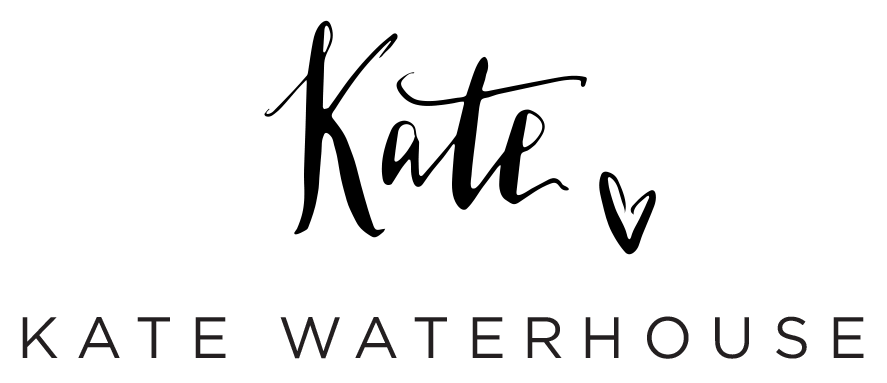
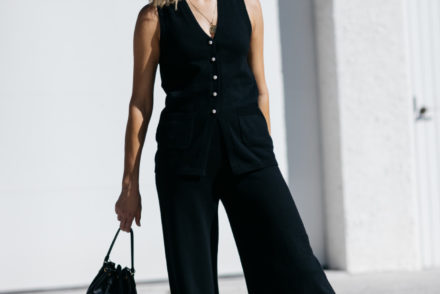
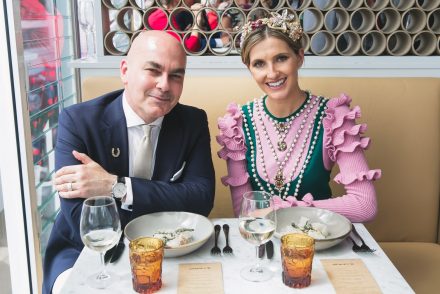
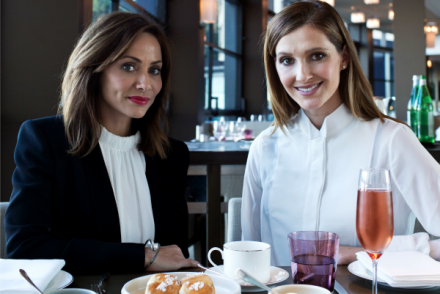
No Comments